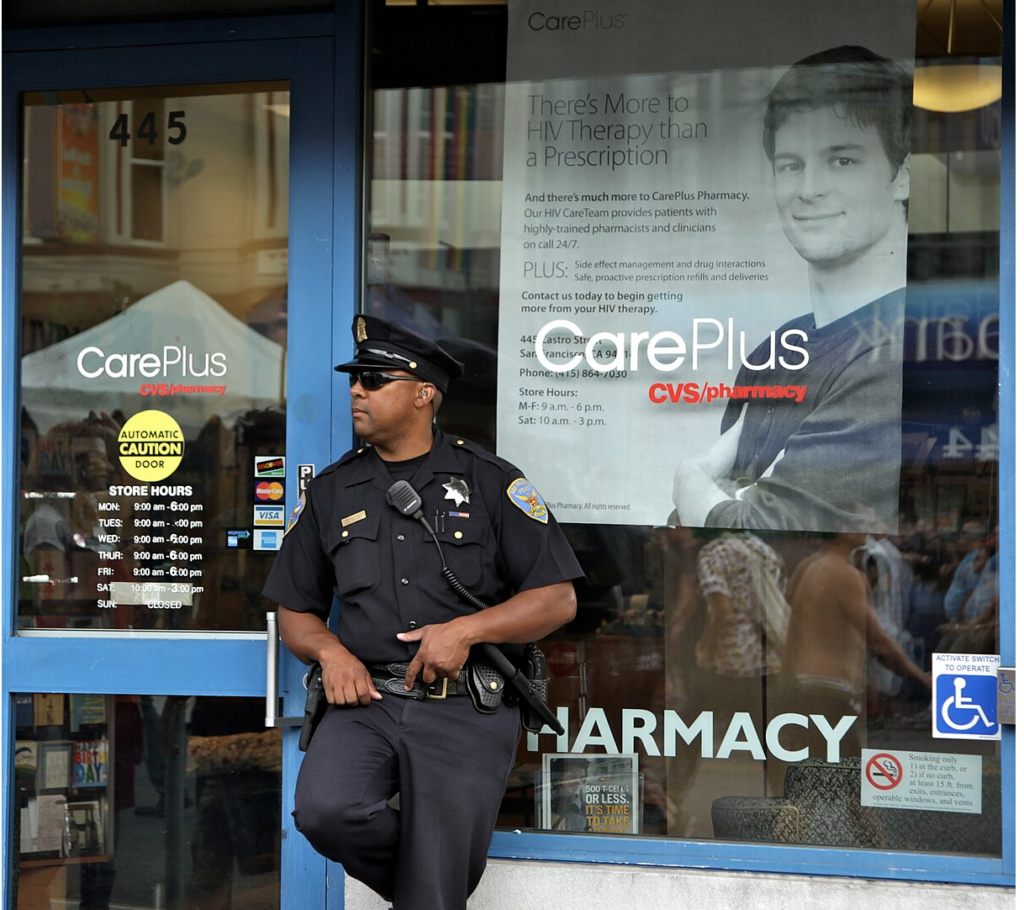The announcement that CVS would close a store in the lower Haight was met with the usual complaints: Too much retail theft is making it impossible to do business in this city.
It’s a line we have heard over and over again, part of a media narrative that has shifted public policy back toward the failures of the tough-on-crime era that led to massive incarceration, particularly of Black men.
But the reality is that CVS is reducing its retail footprint for business reasons—one of them being that the company now makes a majority of its profits from its insurance, benefits management, and mail-order pharmacy operations, according to Securities and Exchange Commission documents, and has a corporate policy of cutting retail storefronts.

In fact, in a pretty stunning report, The New York Times now says that the National Retail Federation can’t defend and had to retract a claim that half of the industry’s $94 billion in lost inventory in 2021 was due to “organized retail theft.”
From the story:
A national lobbying group has retracted its startling estimate that “organized retail crime” was responsible for nearly half the $94.5 billion in store merchandise that disappeared in 2021, a figure that helped amplify claims that the United States was experiencing a nationwide wave of shoplifting.
The group, the National Retail Federation, edited that claim last week from a widely cited report issued in April, after the trade publication Retail Dive revealed that faulty data had been used to arrive at the inaccurate figure.
The retraction comes as retail chains like Target continue to claim that they are the victims of large shoplifting operations that have cut into profits, forcing them to close stores or inconvenience customers by locking products away.
What these giant chains say to the news media—and what the media often reports without much verification—diverts significantly from what corporate executives tell investors.
Classic example, again from the NY Times:
A Walgreens executive said this week that the company, which cited “organized” shoplifting as a reason to close five stores in San Francisco in October 2021, might have overstated the effect of theft on its business.
“Maybe we cried too much last year,” James Kehoe, the company’s chief financial officer, said during a Walgreens earnings call with investors.
Mr. Kehoe also said that the company had “probably” spent too much on security measures and that it might have mischaracterized how much theft took place in its stores.
It was a remarkable admission, retail experts said. Walgreens and other retailers have in recent years complained about an increase in shoplifting, inflaming political debates about crime.
In fact, Walgreens went so far as to hire armed guards in San Francisco stores—which led to the death of an unarmed young trans man.
Somehow, the stories that shows the reality of what happened appear long after the sensational stories that stir up sentiment toward bad political policies. We have seen this for decades. I wonder when my colleagues in the news media will learn.




